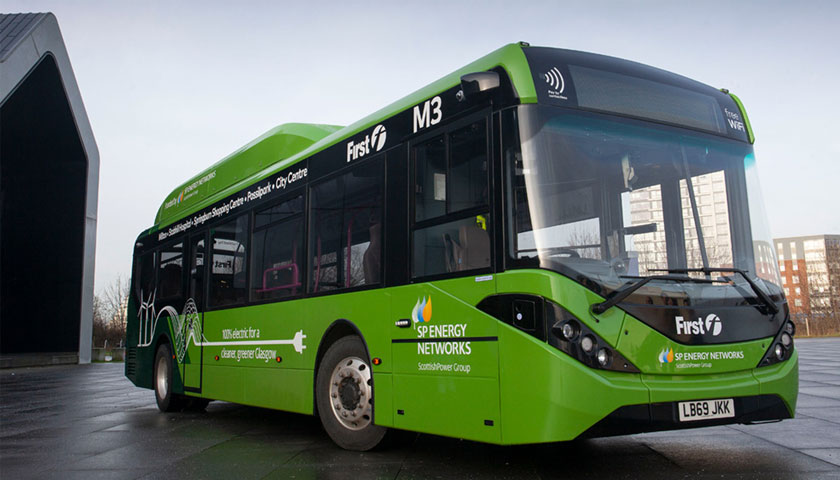Millions of pounds in investment by Wrightbus to develop the next generation of green buses has been welcomed recently by Science Secretary Peter Kyle, highlighting it as a key driver of economic growth under the Plan for Change. As the UK’s fastest-growing zero-emission bus manufacturer and a major employer in Northern Ireland and the wider UK,
Wrightbus’ new funding will accelerate the next generation of electric and hydrogen-powered buses, potentially creating dozens of new jobs, slashing emissions, and supporting the government’s mission to make Britain a clean energy superpower. During his visit to the company’s Northern Ireland headquarters, Science Secretary Peter Kyle praised Wrightbus as a standout example of how investing in R&D fuels business development, job creation and regional economic growth.
Studies show that for every £1 a business invests in R&D, it can generate a return of 20% for the firm – with similar, additional gains spilling over into the wider British economy (1) – evidence of a dynamic economy rooted in enterprise. He called on more businesses to follow suit, emphasising that such investments are crucial for maintaining the UK’s competitive edge in science and technology and that government alone cannot deliver this growth. Wrightbus is part of a growing network of high-tech businesses and innovators driving growth in Northern Ireland. The region boasts a thriving advanced manufacturing sector and a rapidly expanding tech scene.
One such example is Belfast-based Ionic Technologies, which is developing new ways to recycle rare materials needed for electric vehicles and wind turbines, helping to make green technologies more sustainable and less reliant on overseas supply chains. The government’s upcoming Industrial Strategy, set to be published this summer, will build on success stories like Wrightbus and make Britain the best country to do business – helping more firms lead the way in future industries like advanced manufacturing, clean transport, and clean energy. This investment follows government action to increase demand for electric vehicles, with £2.3 billion investment already boosting British manufacturing and improving charging infrastructure.
Since July, the government has seen £34.8 billion of private investment announced into UK’s clean energy industries. The UK was the largest electric vehicle market in Europe in 2024 and the third in the world with over 382,000 sold – up a fifth on the previous year. There are now more than 75,000 public charge points in the UK – with one added every 29 minutes – ensuring that motorists are always a short drive from a socket. Science and Technology Secretary, Peter Kyle said: “Investing in innovation is central to our Plan for Change, but public investment alone is not enough to ensure British businesses remain at the cutting edge of global industries. Wrightbus is proof that businesses backing R&D deliver real-world impact – for both the company themselves and the local region – creating new high-quality jobs, strengthening supply chains across sectors and delivering the new industries of the future.” Wrightbus’ investment will not only boost growth in Northern Ireland. It will help to accelerate the UK’s transition to net zero and our mission to become a clean energy superpower while keeping our economy competitive on the global stage.
The £25 million investment announced today will be used to develop groundbreaking zero-emission vehicles, support UK businesses that provide the parts and technology needed to build them and enhance advanced testing capabilities. Funding includes:
- £10 million to develop the world’s most efficient double-deck and single-deck electric bus, the Wrightbus StreetDeck Electroliner. Designed for extended range and rapid charging times, it can travel up to 200 miles on a single charge and recharge in just 2.5 hours, cutting energy costs and reducing reliance on fossil fuels.
- £5 million to develop the UK’s first hydrogen-powered coach due for release within 18 months. Capable of travelling up to 1,000km on a single refuel, it will rival diesel coaches in range and efficiency and make long-distance travel greener without compromising on performance or convenience.
- £5 million for product validation using the UK’s most advanced proving grounds – ensuring Wrightbus vehicles are rigorously tested for durability, efficiency, and safety so that UK-manufactured buses set new global standards for reliability and performance.
- £5 million for a world-class telematics system – an advanced vehicle monitoring system that collects real-time performance data to operators. The telematics system is improving efficiency, lowering costs, helping fleet operators optimise routes, extending vehicle lifespans and driving down operating expenses using predictive maintenance based on AI algorithms.

